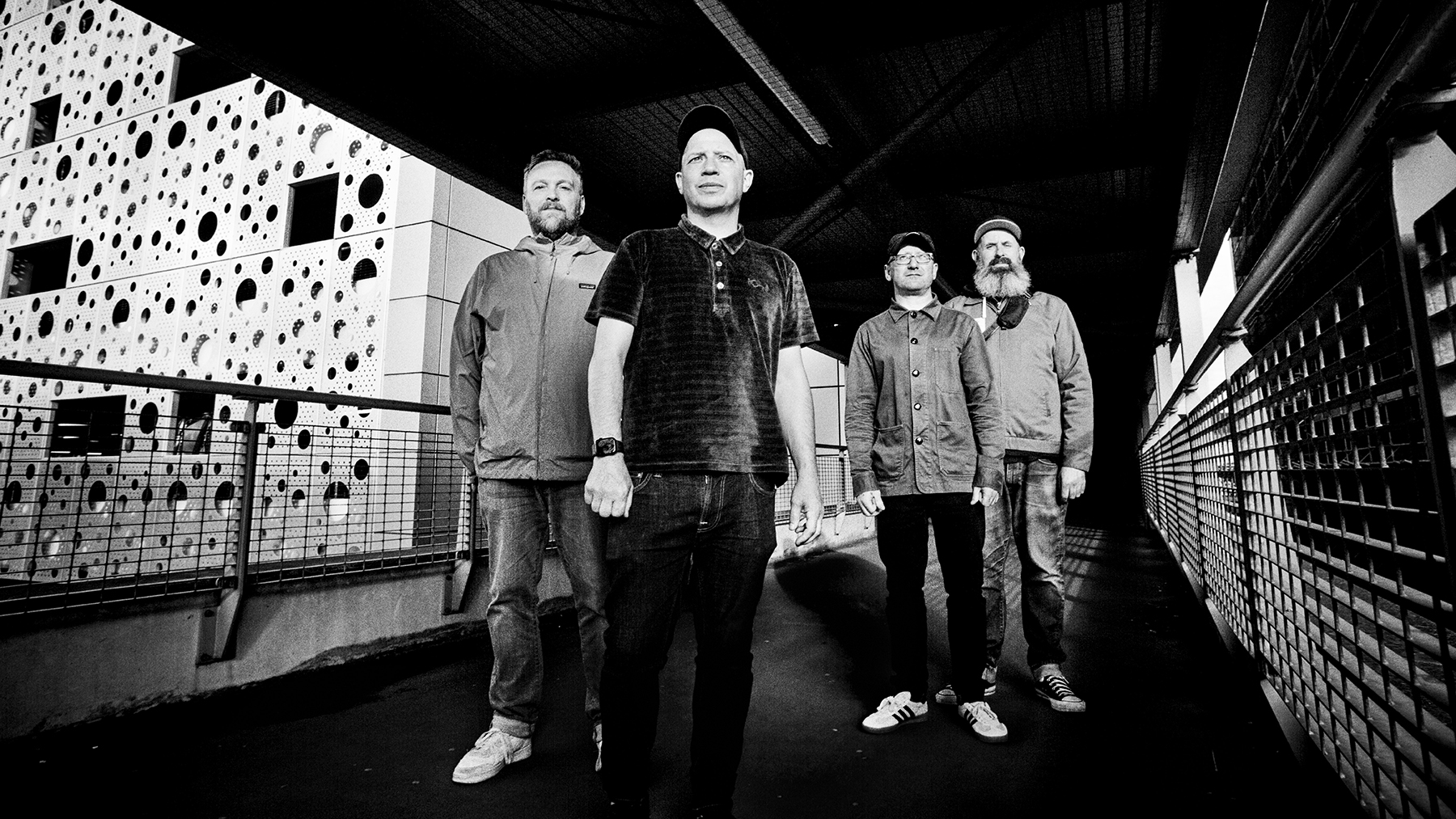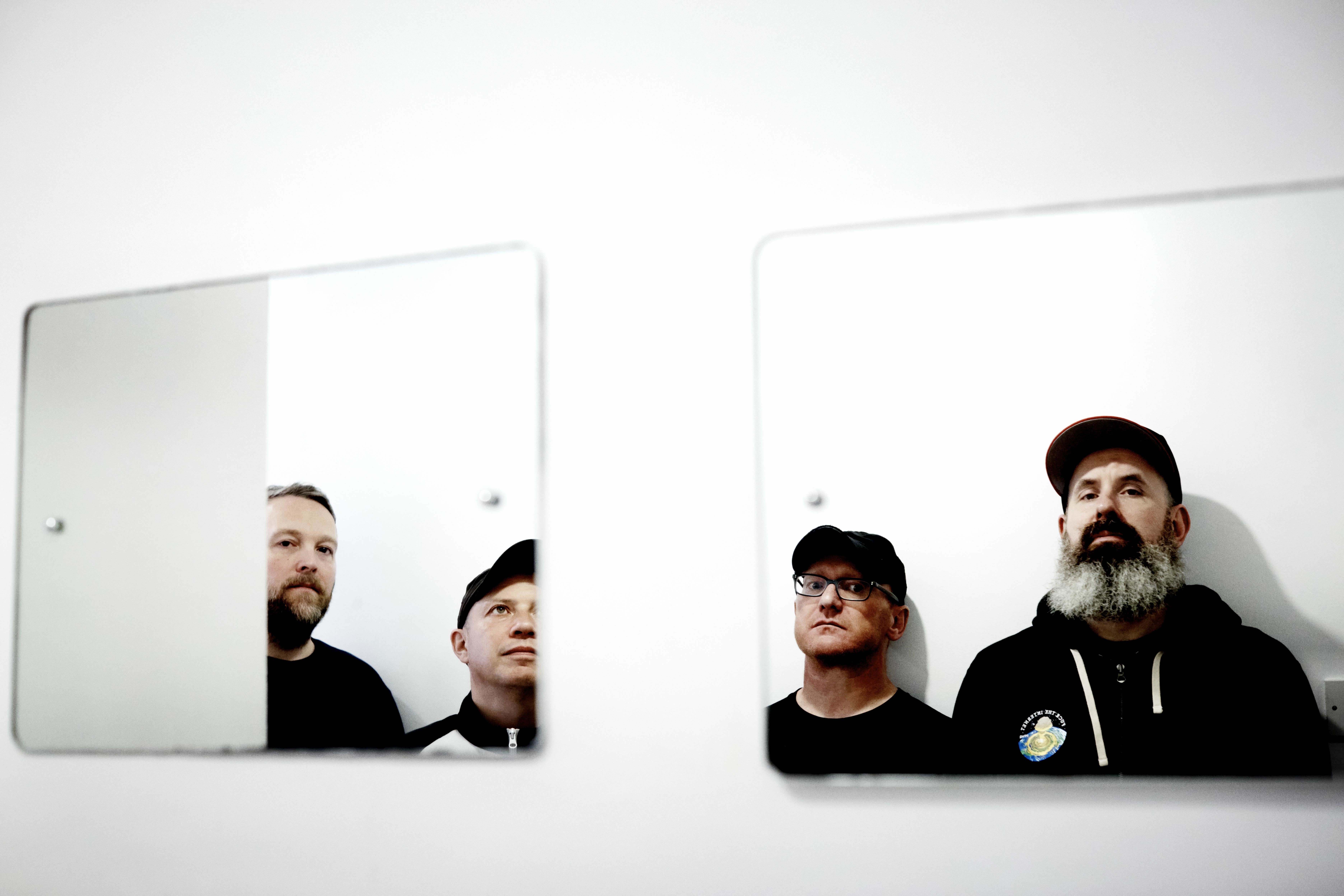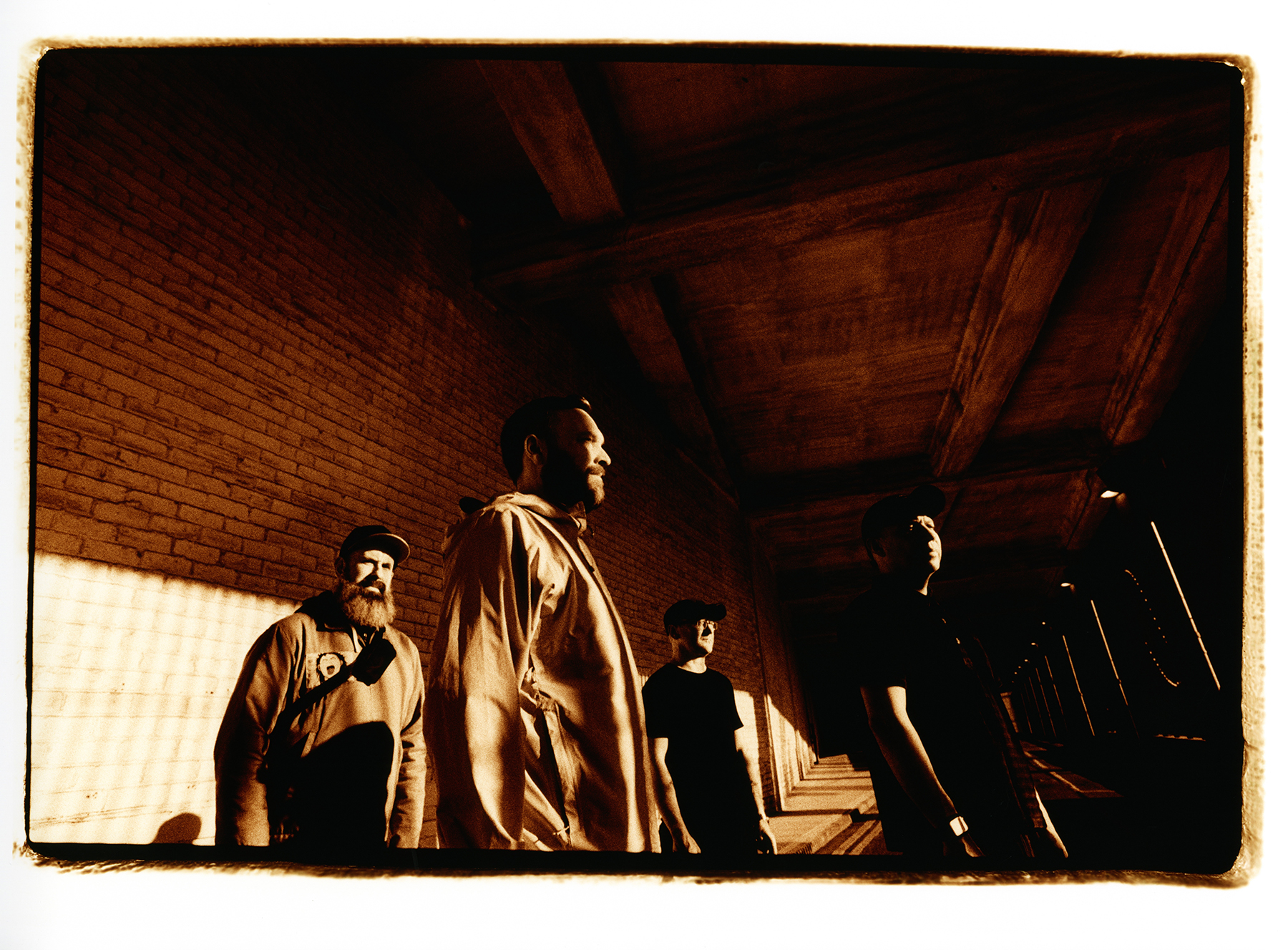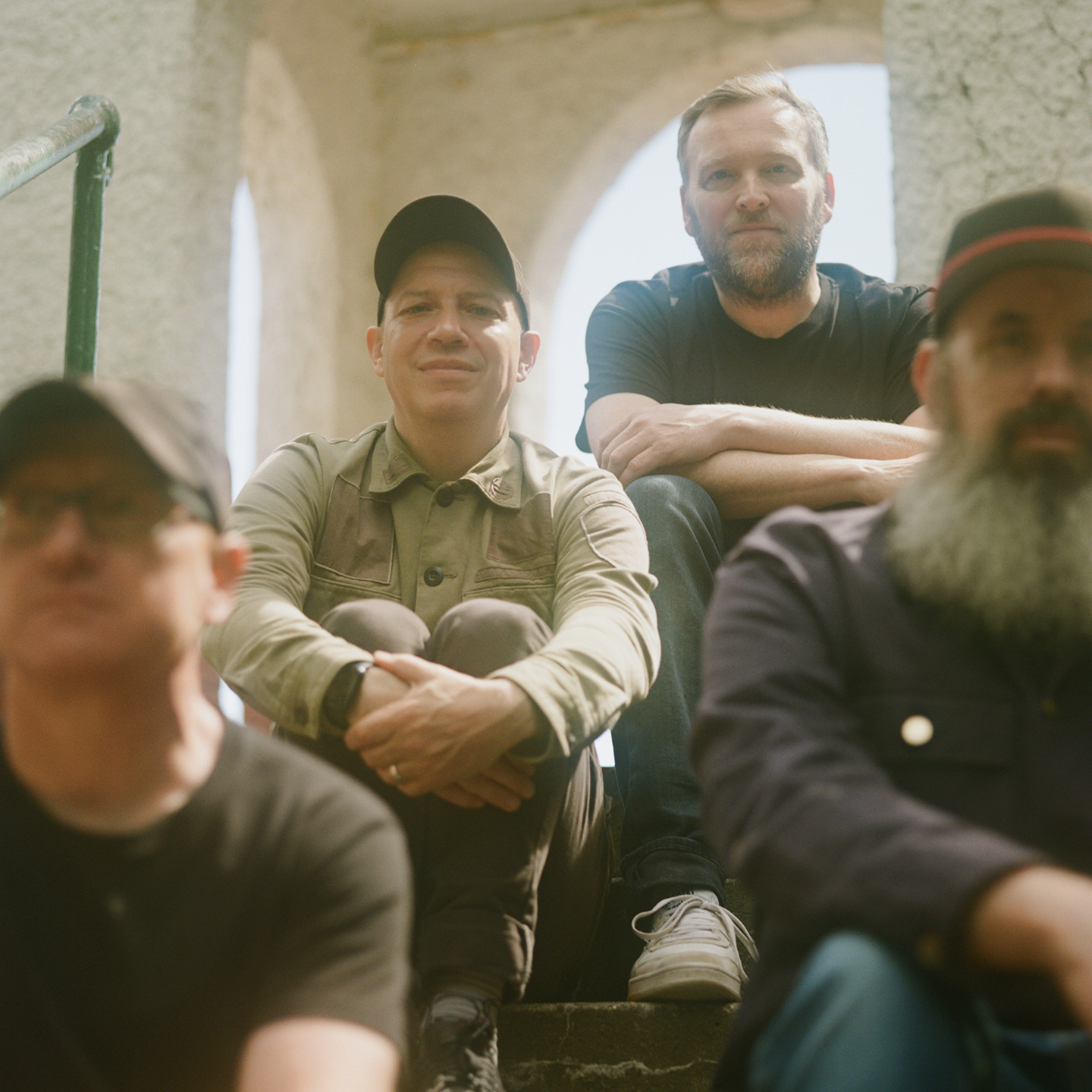"In the studio, everyone is a sad, tragic animal that has no idea what they’re doing - no matter how successful they are": Mogwai producer John Congleton
Following their chart-topping success in 2021, instrumental post-rock quartet Mogwai return with The Bad Fire. Danny Turner dives into the album's creation with the band and renowned producer John Congleton

Want all the hottest music and gear news, reviews, deals, features and more, direct to your inbox? Sign up here.
You are now subscribed
Your newsletter sign-up was successful
Founded by long-time friends with a mission to craft "serious guitar music," Mogwai made their debut in 1997 with the instrumental post-rock album Mogwai Young Team.
From there, the Scottish rockers' journey has been a climb to the top, with each of their last five albums progressively making their way up the pop charts. Astonishingly, the steady ascent culminated in their 2021 release, As the Love Continues, reaching the pinnacle 25 years into their career.
At the cusp of their 30th anniversary, the band comprising Dominic Aitchison, Stuart Braithwaite, Martin Bulloch, and Barry Burns appear to have finally embraced their status as a cherished institution. Now, Mogwai are aiming to both build on and replicate their success with a surprisingly upbeat 11th album The Bad Fire, with help from prolific American producer John Congleton, known for working with St. Vincent, Erykah Badu, and Clairo, among others.
It’s your 30th Anniversary this year. Did you expect to have a career this long-lasting and do you intend to celebrate in some way?
Stuart Braithwaite: “We didn’t expect to have a career full stop and definitely didn’t expect the band to be going this long, especially since we were very young when we started Mogwai. I was just a teenager and in those days you think on a month-to-month basis, so decades would have been a frightening concept. We might do some gigs, but it’s a tightrope – you don’t want to go too heritage and it’s hard to go back.“
For the first time in your career, you had a number one album with As the Love Continues. Was that a shock to the system or the fulfilment of a dream?
SB: “It was our first and only number one album and we’d never even considered that happening, but it was a fun, pleasant surprise. I’ve still got the champagne and if John [Congleton] had known about it he’d have charged us more money, so the pressure’s really on now.“
Want all the hottest music and gear news, reviews, deals, features and more, direct to your inbox? Sign up here.
Barry Burns: “When it came to making this new record, the success of As the Love Continues was kind of in the back of my mind, but we’ve never really felt any kind of pressure. We don’t operate that way; it felt more like a happy blip!“
SB: “I suppose we’re no longer screaming into a void because we know there are definitely some people out there who will want to check out this new music we’re making. The fact that John didn’t even know about it shows how much of an issue it was.“
John Congleton: “To be fair, I’ve never paid attention to things like that. I was excited to work with Mogwai because I was a fan and, in a weird way, it almost seemed predestined that we’d eventually work together. The music business is actually really small when it comes to lifers and you eventually run into people. I have a very visceral and distinct memory of buying Mogwai Young Team in the mid-‘90s while I was on tour in Arkansas and here we all are still doing the same shit.“
In your early days as a producer, the notoriety of working with an artist may have been important in terms of getting your name out there, but is it now less important?
JC: “I’m not that terribly long in the tooth, but one of the great things about getting older is that I don’t give a fuck anymore about how important anybody is. When I get into the studio with people, everyone is a sad, tragic animal that has no idea what they’re doing no matter how successful they are. What I will say about Mogwai is that on the scale of the bands I’ve worked with they’re pretty unselfconscious. Even though they might be neurotic people, they’re not terribly neurotic about the music – they outrun the fear and just keep moving. I like that, because that’s the way I am.“
SB: “We’re probably on the same page there. Once you start analysing where a song’s going to sit in the world it will drive you insane. You just have to ask yourself, do we like this, can we play it any better and does it actually sound good? If you start thinking about stuff on a granular or cultural level you’ll never pick up a guitar, you’ll just stare at it and weep.“
That sounds like good advice for bands starting out. Don’t overthink, especially in terms of the gear you’re using.
JC: “I totally agree. Like Mogwai, I have a metric fuck ton of gear, but I like to try little things to stay inspired that don’t involve the artist I’m working with. For example, I won’t use anything with tube amplification. I love that stuff, but if I can fuck up my process and get myself thinking in a different way I tend to come up with different results.“

In what way was the title of the new album The Bad Fire reflective of a difficult period for the band?
BB: “My daughter got really sick and I couldn’t do any work for a long time, but the band just let me get on with that while they got on with their stuff.“
SB: “I can’t speak for Barry, but making a record almost feels like a way of getting over all of those really heavy personal things. A bunch of us have had some really shitty years, but being able to just book a studio, get a producer and write songs is our way of dealing with it rather than reflecting on anything terrible that’s happened through our art.“
BB: “The last album was during Covid so that was an escape for us too. I guess all of our records are born out of tragedy [laughs].“
SB: “Funnily enough, The Bad Fire is actually one of our more uplifting-sounding records, so we’re probably just projecting the emotions that we’re hoping for, but it’s hard to analyse ourselves. Like John said, we’re just tragic animals.“
In the absence of lyrics, are the track titles jumping off points or do they typically come later?
SB: “They come right at the end, before mastering. Today was our first day rehearsing for the new tour but our drummer didn’t know what any of the songs were called. I wouldn’t say the titles don’t matter because everything matters, but they don’t have an obvious connection to a song - that happens over time.“
JC: “To make things even more confusing, whenever I came into the studio the song titles were really oblique. Some were just the name of the first chord! Working titles are incredibly common when you first start on a record, and that can be a problem for me because if the title isn’t more than an abstraction I have trouble remembering and tend to start naming them even more ridiculous things. With Mogwai, we kept calling the same songs different titles, so it was all one big clusterfuck.“
Mogwai has worked with some pretty high-profile producers over the years. What appealed to you about getting John on board?
SB: “The main reason is that I knew we’d get along well. We have a lot of mutual friends, so I went and had a coffee with John in Los Angeles and felt he had a very similar background to us. Apart from being a funny fucker, he has a track record of making good records and that was our aim. All of the producers we’ve worked with are in that category, but I don’t think you can make a good record with a bad band – there has to be some kind of musicality there.“
JC: “A good producer is one that doesn’t fuck it up, and I always try to keep a slight emotional distance because that’s what fair to the artist. It’s not my record, so all I can do is say what I think, guide things and be the pragmatic person in the room as far as scheduling goes. At the end of the day, I’ve made a lot of records and after they’re done it’s not as though I’ll have sleepover parties with those people afterwards. Sometimes I never see them again in my life.“

Does that make producing a lonely experience or do you quickly accept that it’s just part of the job?
JC: “There’s a certain tragedy in that because when you spend such an intense, intimate time with people watching them do the thing they’re best at it’s a very compelling experience and you can grow attached to people, but they don’t necessarily see that vulnerability in me because it would be ghastly and unprofessional to be an emotional wreck.
“If I walked into a session with Mogwai and said, guys, I’m just not feeling it today that would be fucked up. So to a certain degree there has to be a slight detachment, but then there’s been numerous times when I’ve made records with people and we’ve become great friends. I see myself being totally capable of that with Mogwai, but I don’t know if I’m answering your question.“
Were you involved in the demo-making process?
JC: “I really trust Mogwai to be Mogwai, so I didn’t necessarily need to make comments on the demos. In the studio, we talked abstractions regarding what we wanted the sound to feel like, so it wasn’t a solely technical endeavour.“
SB: “Once a demo is formed, you get an idea what the finished thing will be like. Thankfully, the band has a shared musical language and because we’re all from the same world and John has the same musical tastes as us, the whole process was pretty easy.“
John, is it easier working with a band that’s been around 30 years because they have a certain creative and technical know-how, or is it more difficult because they’re welded to particular ways of doing things?
JC: “It’s a great question, but I can’t give you an accurate answer. I recently worked with a band that’s been together for 50 years and there were major complications because they know the patterns that work for them, but that can be really boring at the end of the day. Steering it back to Mogwai, they’re totally professional and take the music seriously but don’t take themselves seriously. That meant there was plenty of latitude because they were open to giving things a go and we’d get quite scientific about that. I don’t remember anything being tense or awkward and the process seemed effortless, but I’d love to hear their response.“
SB: “If I was going to give advice to anyone that gives a fuck it’s that it’s very easy to try something and if you like it, keep it, and if you don’t then do something else. These are not life or death decisions and the chances are that whatever you try will work out because most ideas have something good about them.“
JC: “The amazing thing about art in general is that, actually, anything works and all you have to do is commit to it. If your guitar is out of tune, is that a problem or should you make it more of out of tune? If you make a 50-minute piece of music that’s only in the note A because that’s what you wanted to do, then you did the right thing. The fact that you can do anything is what makes me keep coming back to music.“
So why do so many artists take 10 years to make an album these days?
SB: “They’re not taking a decade to write an album, they’re just being lazy fuckers and doing something else for nine years. For us, trying to do something different is what makes making music enjoyable. It helps that we all write songs. If a band has just one person writing them, you’re really at the mercy of whatever’s going on in that person’s life. If they’re too happy or unhappy to write music the band grinds to a halt, but that’s not been an issue for us because someone else will always come up with ideas.“
John, were you keen to check out Mogwai’s studio environment to see what you had to work with?
JC: “I went to Scotland to make the record but it was totally sight unseen for me. At the end of the day, I can make a record anywhere that has electricity and some microphones. Complications breed inspiration, so I like to just roll into situations condom-off and see what happens. Most times people come to my studio, which is extremely well-equipped, elaborate and over-engineered in terms of how I like to make records.“

And with laptops you can pretty much travel anywhere and work with any DAW?
JC: “Actually, I only know Pro Tools, which is pretty universal, so as long as they have Pro Tools or a tape machine then I’m fine. I’m a gear collector myself, but the only thing I remember Stuart having that I didn’t was a crude, old-school reverb pedal. It seemed like it was from the ‘80s, so I bought one but haven’t taken it out of the box yet. Ultimately, a record reveals itself as to what’s working and then you maintain a loyalty to that.“
Some people get very attached to their gear – especially guitarists. Are you using the same instruments that you were 30 years ago?
BB: “It’s nice to use the one guitar that you really like, but it really doesn’t matter as long as I’ve got a whammy bar. With keyboards and stuff, I’ll just pick up whatever I’ve bought that’s new. I’m an advocate for an album sounding very different to the last, so in those terms it always helps to use stuff that you’ve never used before. I’m not super-technically minded, so when I get a new synth I’m just touching it and moving things around until something happens.“
We read somewhere that you always intended to get a better title for the band than Mogwai?
SB: “We’re not business geniuses, but changing our band name after 11 albums wouldn’t be a good idea even by our low standards. We still think it’s a pretty bad band name, but there are worse ones so it hasn’t really held us back much.“
John, what production projects do you have coming up and is there anyone you’d love to work with that you haven’t had the chance to?
JC: “To be honest, I try to evade that question because there’s always a bunch of records coming out that I’ve worked on and I don’t want to drop a PR bomb. I only try to work on things that I’m inspired or excited by, so I can get behind something even if it’s not music that I would necessarily celebrate. As far as people I want to work with goes, I’ll consider anyone who wants to work with me. If you choose me, then I can choose you!“
Mogwai’s new album, The Bad Fire, is released Jan 24 via Rock Action. For more info, click here.